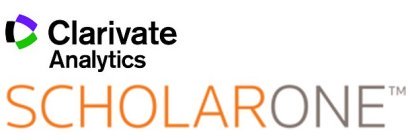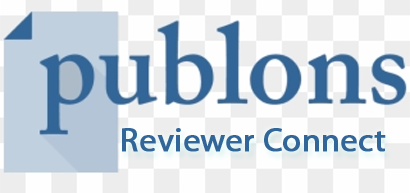
JOURNAL POLICY
Copyright Policy
Copyrights for articles are retained by the authors, with first publication rights granted to the journal/publisher. Authors have rights to reuse, republish, archive, and distribute their own articles after publication. The journal/publisher is not responsible for subsequent uses of the work.
Open-access Policy
We follow the Gold Open Access way in journal publishing. This means that our journals provide immediate open access for readers to all articles on the publisher’s website. The readers, therefore, are allowed to read, download, copy, distribute, print, search, link to the full texts or use them for any other lawful purpose. The operations of the journals are alternatively financed by publication fees paid by authors or by their institutions or funding agencies.
All articles published are open-access articles distributed under the terms and conditions of the Creative Commons Attribution license.
Submission Policy
Submission of an article implies that the work described has not been published previously (except in the form of an abstract or as part of a published lecture or academic thesis), that it is not under consideration for publication elsewhere, that its publication is approved by all authors and tacitly or explicitly by the authorities responsible where the work was carried out. However, we accept submissions that have previously appeared on preprint servers (for example: arXiv, bioRxiv, Nature Precedings, Philica, Social Science Research Network, and Vixra); have previously been presented at conferences; or have previously appeared in other “non-journal” venues (for example: blogs or posters). Authors are responsible for updating the archived preprint with the journal reference (including DOI) and a link to the published articles on the appropriate journal website upon publication.
The publisher and journals have a zero-tolerance plagiarism policy. We check the issue using two methods: a plagiarism prevention tool (AntiPlagiarism.NET) and a reviewer check. All submissions will be checked by AntiPlagiarism.NET software before being sent to reviewers.
We insist a rigorous viewpoint on the self-plagiarism. The self-plagiarism is plagiarism, as it fails to contribute to the research and science.
Plagiarism Committee
All the submitted articles are initially scanned with Crossref Similarity Check powered by AntiPlagiarism.NET / CrossCheck. Upon completion of the plagiarism scan, they analyze the quality of the manuscript and report to the editor, after which the manuscript gets assigned for the review process. A plagiarism report is created which is emailed to the author along with a review report. The committee looks into plagiarism related issues and deals with them according to COPE guidelines.
Deposit Policy / Archiving Policy
We follow Sherpa/Romeo's green archiving policy. Both pre-print and post-print or publisher's version/PDF can be archived, without restrictions.
Article Processing Charges (APC) Policy
All articles published in IJEMR journal are open access and freely available online, immediately upon publication. This is made possible by an article-processing charge (APC) that covers the range of publishing services we provide. This includes provision of online tools for editors and authors, article production and hosting, liaison with abstracting and indexing services, and customer services. The APC payable only, when your manuscript is editorially accepted and before publication, is charged to you, or your funder, institution or employer. Click here to get details of APC.
Waiver Policy
Journal does not take any kind of acceptance fee/review fee/handling fee/processing fee. Authors have to pay only online maintenance charges. We charge from authors an Article Processing Charges (APC) for each article they publish. These charges help the open-access journals to cover their operational expenses. To avoid confusion and ensure fairness among authors, we do not waive or reduce processing charges to anyone.
Refund Policy
We implement a reasonable refund policy based on the publishing status.
- Fully refund: online version is unpublished.
- Half refund: online version is published and print version is unpublished.
- No refund: both the online and print version is published.






